Most celebrations in Ethiopia have religion background mainly after the introduction of Christianity. Such as New year celebration after saint Jhone, Meskel feast (the finding of true cross), Gena(x-mas), Timket (Epiphany), St. Mary Zion, palm Sunday and Easter are some of the religious festivals, which are widely celebrated all over the country every year.
Semien national park was firstly gazette in 1969 and registered in 1978 as the first Ethiopian world natural heritage and covers an area of 245 sqkm. Due to its unique, scenery landscape and biodiversity of fauna and flora were the criteria to be register as the first Ethiopian world natural heritage. The semien mountain massif is one of the major highland of Africa rising to the highest point in Ethiopia, Ras Dejen (4560 m), which is the fourth highest peak in the continent. Although in Africa, not far from equator, snow and ice appear on the highest points, and nights temperature often fall below zero.
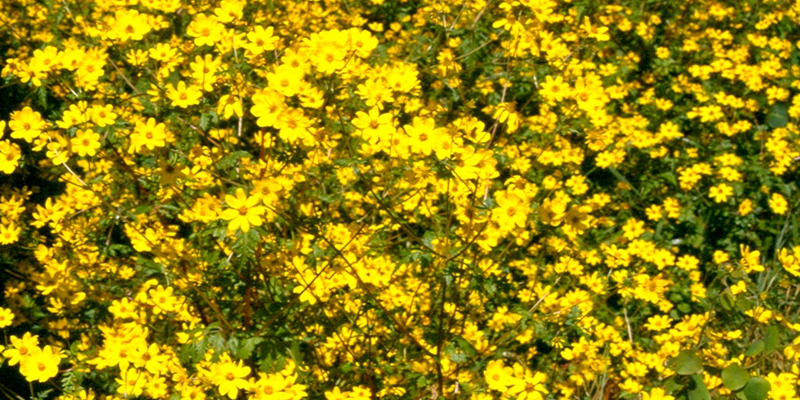
Ethiopian new year falls on 11th September of Gregorian calendar, marks the perfect season, when yellow daisies (adey abeba) start to blossom in the midst of the green countryside, after the long rains end. The day is also linked to the Queen of Sheba, her famous travel to Jerusalem, and what happened afterward. It is the principal calendar used in the Ethiopian orthodox church as the liturgical year. A 7-8-year gap between the Ethiopian and Gregorian Calendars results from an alternate calculation in determining the date of the Annunciation.
The Ethiopian calendar has twelve months of 30 days plus five or six epagomenal days, which comprise a thirteenth month. The sixth epagomenal day is added every four years. Thus the first day of the Ethiopian year, is usually September 11 (Gregorian). It, however, falls on September 12 in years before the Gregorian leap year.
Meskel, one of the major Ethiopian Orthodox festivals is celebrated on 26th September. Legend has it that in the year 326, Queen Helena, as she is known, had a revelation in a dream. She was told that she should make a bonfire and that the smoke would show her where the true cross was buried. So she ordered the people of Jerusalem to bring wood and make a huge pile. After adding frankincense to it the bonfire was lit and the smoke rose high up to the sky and returned to the ground, exactly to the spot where the Cross had been buried.
The day after the Demera is Meskel. This day is observed with plenty of food and drink as believers go to the spot of the Demera and, using ashes from the fire, mark their heads with the sign of the cross. The festival coincides with the mass blooming of the golden yellow Meskel daisies.
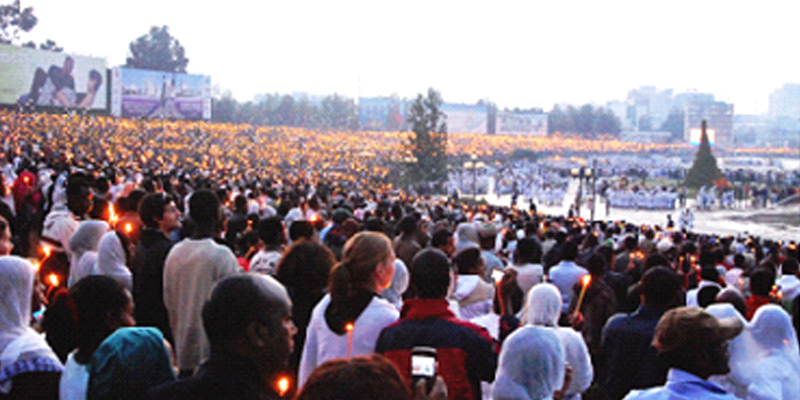
Timkat is the Ethiopian Orthodox celebration of Epiphany. It is celebrated on January 19 (or 20 on Leap Year), corresponding to the 10th day of Terr following the Ethiopian calendar. It celebrates the baptism of Jesus in the Jordan River.
During the ceremonies of Timkat, the Tabot (Replica of the Ark) is taken out from each church in the afternoon on the eve of Epiphany to the nearest water body and stays overnight with the priests and faithful congregation. The following morning the water is blessed and splashed on everyone in a ceremony where the faithful renew their vows to the Church. If the body of water is large enough, some people will immerse themselves. Woman who have been unable to have children participate in the ritual for fertility. After the ceremony the holy Ark is escorted back to its church in colorful procession and festivities. The clergy, bearing robes and umbrellas of many hues, perform rollicking dances and songs.
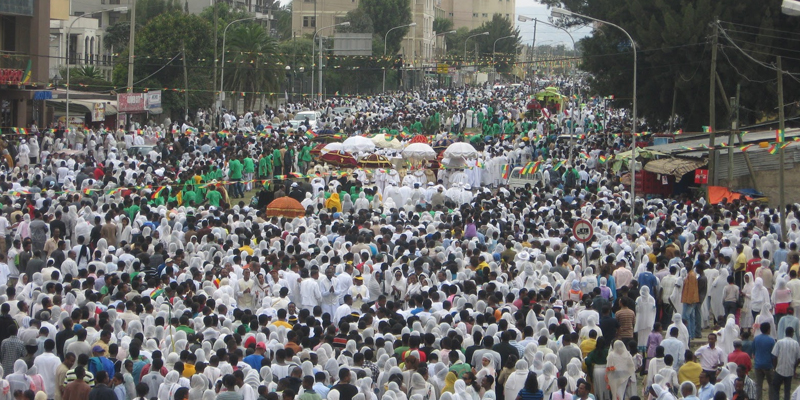
The Ethiopian Christmas falls on January 07 (or 08 during leap year) ever year and celebrates the birth of Juses christ. Christmas is warmly celebrated in Ethiopia after 45 days of Advent fasting before Christmas. It starts on 25th November and is known as the 'Fast of the Prophets' (Tsome Neviyat). This festival has a special place in the hearts of many Ethiopians—according to Ethiopian tradition, one of the Wise Men(Baltazar) who visited the baby (Jesus) at Bethlehem, was from Ethiopia. During this festival, night mass is conducted in all churches, people who go to churches to attend the night mass lit candles, most people, particularly, women wear white traditional clothes, priests and young boys and girls chant and dance, people play thousands of years old game, Ganna, (one of Ethiopia’s traditional games which is much similar to that of the “hockey” game in Europe and America), choirs sing spiritual songs at churches and more.
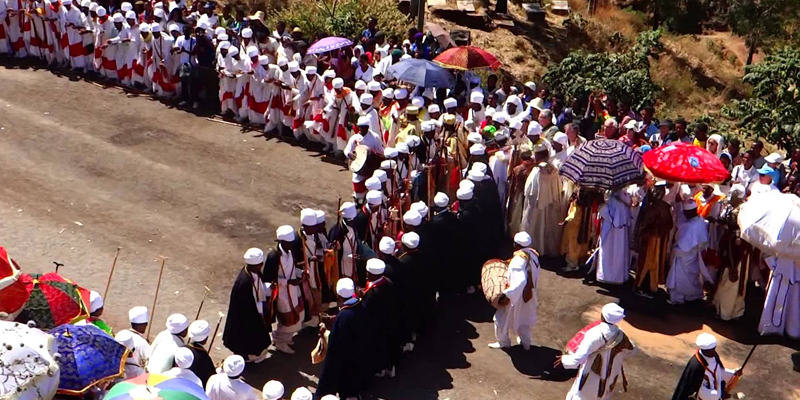
Ethiopian Easter, or Fasika, takes place in Orthodox Churches throughout the country, and follows the eastern method of calculating Easter. Fasika is a much more important festival than Christmas, since the Death and Resurrection of Jesus is more significant in Orthodox theology than his birth. Jesus' crucifixion which led to his death on a Friday, according to Orthodox thought was for the purpose of fulfilling the word of God, and led to the conquest of death and Jesus' resurrection from the tomb after three days, the third day being the Sunday when Ethiopian Easter is celebrated.
Fasika is a climactic celebration. Fasting becomes more intense over the 55-day period of Lent, when no meat or animal products of any kind, including milk and butter, are eaten. Good Friday starts off by church going, and is a day of preparation for the breaking of this long fasting period.
The faithful prostrate themselves in church, bowing down and rising up until they get tired. The main religious service takes place with the Paschal Vigil on Saturday night. It is a somber, sacred occasion with music and dancing until the early hours of the morning. At 3:00 a.m. everyone returns home to break their fast, and a chicken is slaughtered at midnight for the symbolic occasion. In the morning, after a rest, a sheep is slaughtered to start the feasting on Easter Sunday.
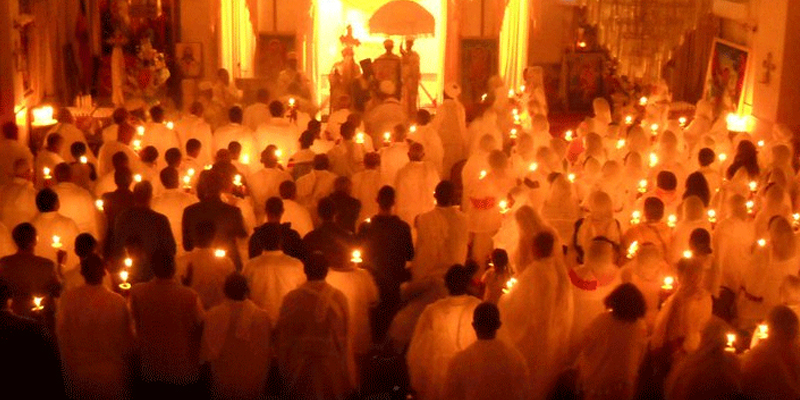
+251918040958
historicabyssinia@gmail.com
teodrosnegesse16@gmail.com